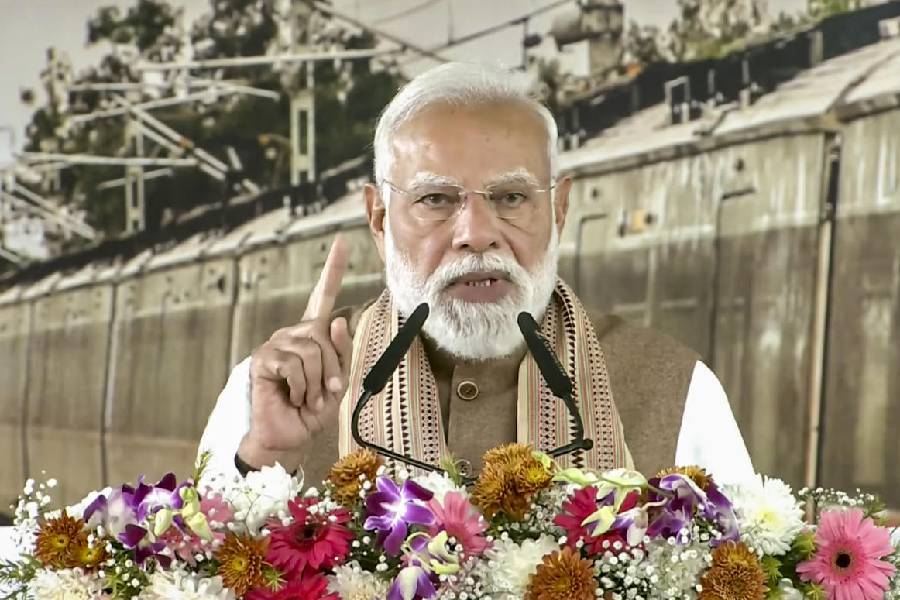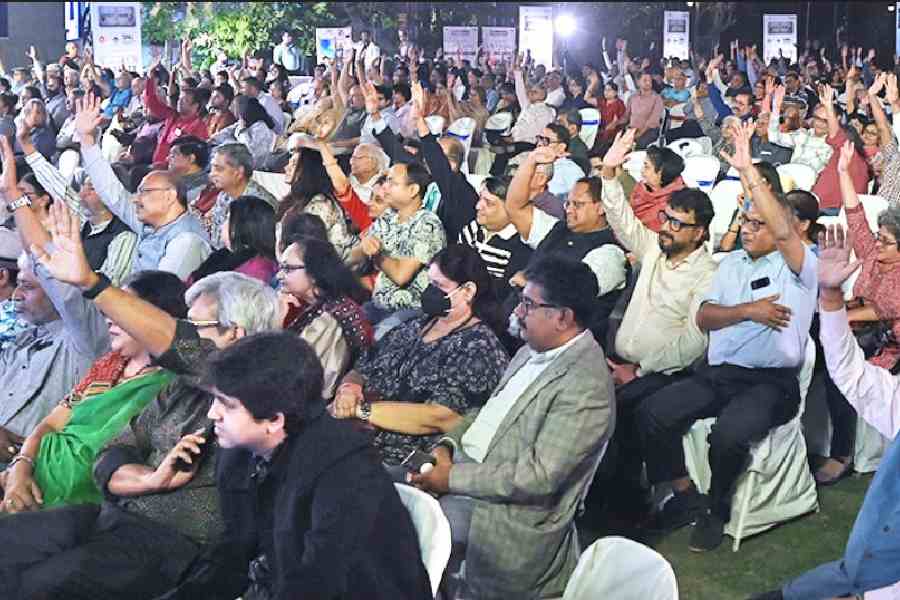Real excitement
Sir — Tinder has released ‘The Game Game’, a chatbot designed to help users practise their conversation skills so that they can talk to their dates in real life. While the intention is admirable, it strikes me as a sign of the times that we now need AI to teach us how to speak to one another. The thrill of meeting someone new, with all its nervousness and excitement, is something irreplaceable as is the feeling of being tongue-tied in his or her presence. Instead of relying on bots, perhaps we should simply encourage people to put their phones down and say hello in real life. True connection, after all, is best experienced face to face.
Soumili Das,
Calcutta
Choose diplomacy
Sir — The growing tension between the United States of America and Iran is deeply concerning. While the Donald Trump-led US administration seems eager for a quick military solution, such an approach could have unintended consequences that would harm American interests and West Asia’s. Iran’s capacity to retaliate with its proxies and missile systems would certainly lead to a protracted conflict, impacting global security and energy markets. Rather than rushing into war, the US should seek multilateral discussions and diplomatic engagement as the risks of war outweigh the potential benefits. A negotiated settlement would be far more beneficial for regional stability.
Avinash Godboley,
Dewas, Madhya Pradesh
Sir — The prospect of a US-Iran war over nuclear weapons could lead to catastrophic consequences not only for West Asia but also for the global economy. With Iran’s ability to retaliate using missiles and drones, a military conflict would destabilise the region further. The US’s and Israel’s current strategy seems to be to prioritise immediate action over long-term stability. It is imperative for diplomacy to be the primary focus and all efforts should be made to revive meaningful negotiations rather than escalating military tensions.
M.N. Gupta,
Hooghly
Sir — The US administration’s aggressive stance towards Iran and its nuclear programme is deeply troubling. While the US-Israel alliance may feel emboldened, military intervention could plunge the region into chaos with far-reaching effects on global trade, energy supplies and inflation. A war with Iran would destabilise the Middle East, affecting countries such as India that rely on energy exports from the Gulf. The world cannot afford another military conflict; it is time for diplomacy to take centre stage. The US and Iran must return to negotiations, not just for their own sake but for the stability of the entire region.
M. Jeyaram,
Sholavandan, Tamil Nadu
Uphill task
Sir — The recent decision to convert Vodafone Idea’s dues into equity represents a significant intervention by the government. While it may provide short-term relief for the ailing company, the long-term viability of this support is unclear. With a substantial debt burden and declining subscriber numbers, the company faces an uphill battle to regain profitability. The telecom sector needs robust competition to ensure consumer benefit. A market dominated by two players, Reliance Jio and Bharti Airtel, may stifle innovation and push prices up. The government should prioritise market dynamics and ensure fair competition rather than offering indefinite support to a struggling operator.
Gopalaswamy J.,
Chennai
Sir — The government’s continued support for Vodafone Idea by converting dues into equity raises an important question about the future of competition in India’s telecom sector. The reality is that Vodafone Idea’s financial position remains precarious with mounting debts and declining market share. The government should focus on policies that foster healthy competition.
T. Ramadas,
Visakhapatnam










